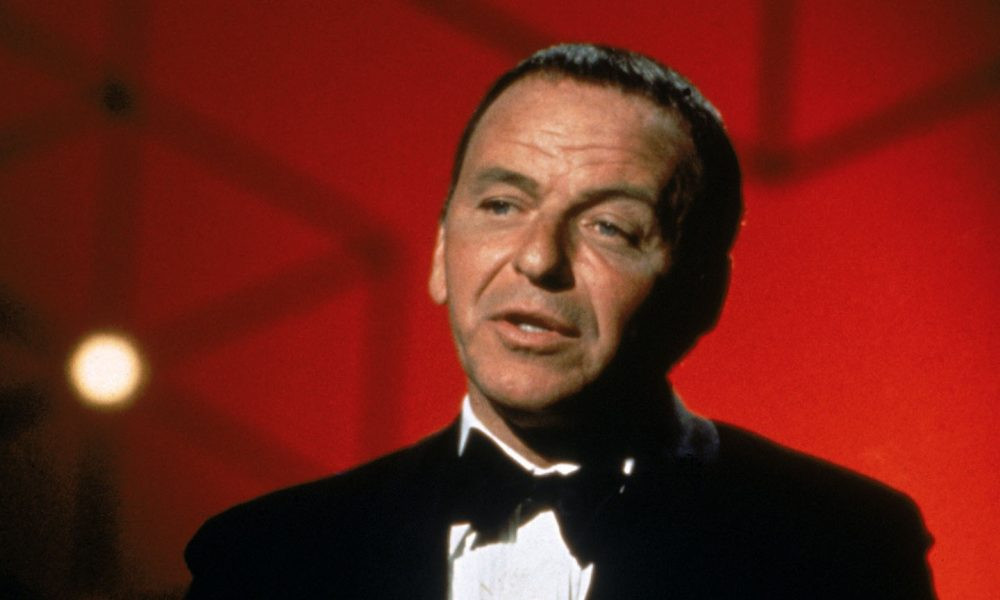Frank Sinatra’s rendition of “My Way” is legendary. It has dominated the UK charts for an astounding 124 weeks, far surpassing any rival and becoming a timeless classic. Its enduring appeal in a world of endless streaming is undeniable. But while Sinatra made it famous, the question remains: who wrote the song “My Way”? The answer is more intricate than you might expect, taking us on a journey from France to the world stage.
 Frank Sinatra
Frank Sinatra
The iconic Frank Sinatra performing live, capturing the timeless essence of “My Way”.
The recording session for Sinatra’s version took place on December 30, 1968, a rare afternoon session for “The Chairman of the Board.” With 40 musicians and his trusted pianist Bill Miller conducting, Sinatra began work on what would become his signature anthem. However, the melody and initial concept of “My Way” originated far from the US, across the Atlantic in France.
The French Connection: “Comme d’Habitude”
The song’s genesis lies in a French song titled “Comme d’Habitude,” which translates to “As Usual.” This original version was a collaborative effort, penned by Jacques Revaux and Gilles Thibault, alongside French singer Claude François, who was born in Egypt. “Comme d’Habitude” captured a sense of melancholic routine and relationship fatigue, a far cry from the empowering anthem “My Way” would become.
Paul Anka’s Transformation: From French Ballad to English Anthem
It was Canadian singer-songwriter Paul Anka who undertook the task of transforming “Comme d’Habitude” into “My Way.” Anka, recognizing the potential of the melody, crafted entirely new English lyrics. He reshaped the song’s narrative into a powerful declaration of independence and self-determination, perfectly embodying Sinatra’s persona and career trajectory. Anka’s lyrical genius is what ultimately turned the French ballad into the global phenomenon we recognize as “My Way.”
David Bowie’s Missed Opportunity
Interestingly, Paul Anka wasn’t the first to attempt an English adaptation of “Comme d’Habitude.” Months before Anka’s successful version, David Bowie, then on the cusp of superstardom, also took a shot at writing English lyrics. Bowie’s version, titled “Even A Fool Learns To Love,” was ultimately rejected. His demo, featuring lyrics like “There was a time, the laughing time/I took my heart to every party/They’d point my way/How are you today?” offered a different, perhaps less anthemic, interpretation. While intriguing, it was Anka’s vision that resonated and ultimately became “My Way.”
Sinatra’s “My Way” Ascends the Charts
Released in 1969, Sinatra’s “My Way” quickly climbed the Billboard charts, entering in the last week of March at No. 69, the highest new entry that week. Within six weeks, it peaked at No. 27, a somewhat surprising plateau given the song’s future iconic status. In the UK, however, “My Way” soared to No. 5, contributing significantly to the success of the album of the same name in the summer of 1969.
A Song Covered Across Genres
Beyond Sinatra’s definitive version, “My Way” has become a karaoke staple and has been interpreted by a diverse array of artists across genres. Brook Benton charted with it in the US in 1970. Elvis Presley recorded a poignant version in 1977, released posthumously as his first single after his death, reaching No. 22. In a surprising twist, Sex Pistols’ Sid Vicious delivered a punk rendition in 1978, taking it to No. 7 in the UK. Later, Shane MacGowan of The Pogues also brought his unique style to the song, reaching the Top 30 almost two decades later.
These varied covers demonstrate the enduring and universal appeal of “My Way,” a song that continues to resonate with people from all walks of life, regardless of musical taste.
In conclusion, while Frank Sinatra indelibly stamped “My Way” with his persona, the song is the product of a fascinating transatlantic journey of collaboration and adaptation. The original melody and concept came from French songwriters Jacques Revaux, Gilles Thibault, and Claude François, who created “Comme d’Habitude.” It was Paul Anka’s masterful English lyrics that transformed it into the empowering anthem “My Way,” making it the timeless classic we know today.
Listen to the best of Frank Sinatra on Apple Music and Spotify.
